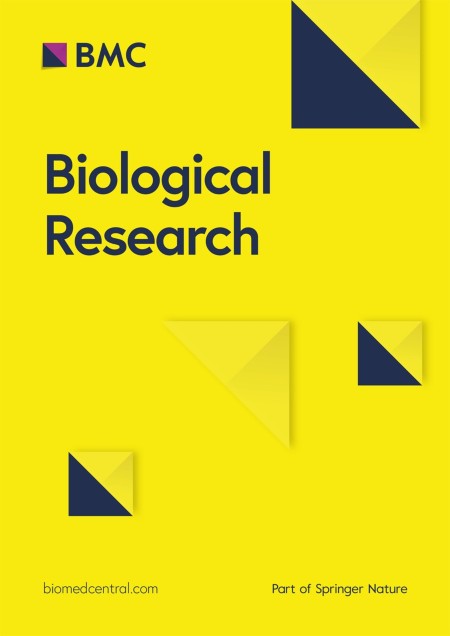Mouse testicular macrophages can independently produce testosterone and are regulated by Cebpb
IF 4.3
2区 生物学
Q1 BIOLOGY
引用次数: 0
Abstract
Testicular macrophages (TM) have long been recognized for their role in immune response within the testicular environment. However, their involvement in steroid hormone synthesis, particularly testosterone, has not been fully elucidated. This study aims to explore the capability of TM to synthesize and secrete testosterone de novo and to investigate the regulatory mechanisms involved. Transcriptomic analysis revealed significant expression of Cyp11a1, Cyp17a1, Hsd3b1, and Hsd17b3 in TM, which are key enzymes in the testosterone synthesis pathway. qPCR analysis and immunofluorescence validation confirmed the autonomous capability of TM to synthesize testosterone. Ablation of TM in mice resulted in decreased physiological testosterone levels, underscoring the significance of TM in maintaining testicular testosterone levels. Additionally, the study also demonstrated that Cebpb regulates the expression of these crucial genes, thereby modulating testosterone synthesis. This research establishes that TM possess the autonomous capacity to synthesize and secrete testosterone, contributing significantly to testicular testosterone levels. The transcription factor Cebpb plays a crucial role in this process by regulating the expression of key genes involved in testosterone synthesis.小鼠睾丸巨噬细胞可独立产生睾酮并受 Cebpb 调节
睾丸巨噬细胞(TM)在睾丸环境中的免疫反应作用早已得到公认。然而,它们参与类固醇激素(尤其是睾酮)合成的情况尚未完全阐明。本研究旨在探索睾丸激素从头合成和分泌睾酮的能力,并研究其中的调控机制。转录组分析表明,Cyp11a1、Cyp17a1、Hsd3b1和Hsd17b3在TM中大量表达,它们是睾酮合成途径中的关键酶。在小鼠体内消融 TM 会导致生理睾酮水平下降,这凸显了 TM 在维持睾丸睾酮水平方面的重要作用。此外,该研究还证明,Cebpb 可调节这些关键基因的表达,从而调节睾酮的合成。这项研究证实,睾丸组织具有合成和分泌睾酮的自主能力,对睾丸睾酮水平的提高有重要作用。转录因子 Cebpb 通过调节参与睾酮合成的关键基因的表达,在这一过程中发挥了至关重要的作用。
本文章由计算机程序翻译,如有差异,请以英文原文为准。
求助全文
约1分钟内获得全文
求助全文
来源期刊

Biological Research
生物-生物学
CiteScore
10.10
自引率
0.00%
发文量
33
审稿时长
>12 weeks
期刊介绍:
Biological Research is an open access, peer-reviewed journal that encompasses diverse fields of experimental biology, such as biochemistry, bioinformatics, biotechnology, cell biology, cancer, chemical biology, developmental biology, evolutionary biology, genetics, genomics, immunology, marine biology, microbiology, molecular biology, neuroscience, plant biology, physiology, stem cell research, structural biology and systems biology.
 求助内容:
求助内容: 应助结果提醒方式:
应助结果提醒方式:


